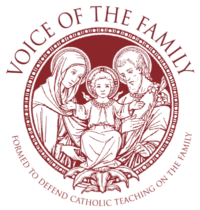FAQ
Our Lady of the Rosary Family Catechism is offered free of charge to all families and children, all over the world. The only cost will be your willingness to make the necessary sacrifices involved in learning the catechism, and in persevering throughout the course!
However, there are real costs involved in the production of the course. Therefore, if you would like to make a donation towards Our Lady of the Rosary Family Catechism, we would be most grateful. More details can be found on our donate page.
Although the videos are created with children in mind, the course is for the whole family. Therefore, children of all ages- as well as parents!- are encouraged to participate in the course together, so that parents as primary educators may be equipped in catechising their children. Adults who wish to learn the basic teachings of the Catholic Faith, may also find the course beneficial. Our Lady of the Rosary Family Catechism is designed to be truly a crusade of learning thoroughly the essentials of the Catholic Faith, so that ignorance of these saving truths might be vanquished.
The key teaching takes the form of 41 online videos; 3 introductory videos, 37 videos of lesson content and 1 closing video. The content for the 37 lessons follows the structure of the Baltimore Catechism, which has been covered in its entirety. Of the 421 questions and answers contained in the Baltimore Catechism, 404 questions and answers have been selected to be included in Our Lady of the Rosary Family Catechism.
Each video lesson begins with the prayer taught by Our Lady to the children of Fatima and a brief Bible story, normally taken from the Gospel. This is followed by presenting the questions and answers from Baltimore Catechism 1 and 2, drawing also on the teaching provided in Baltimore Catechism 4. Each lesson finishes by introducing the children to the life of a Saint or another miracle from the history of the Catholic Church, such as a Eucharistic miracle.
The Baltimore Catechism is a catechism of Christian doctrine which was prepared and enjoined by order of the Third Plenary Council of Baltimore. From 1885, it was the standard catechism used in the teaching of the Catholic Faith throughout North America. It has since been used by Catholics throughout the world to catechise their children.
All children following Our Lady of the Rosary Family Catechism are strongly encouraged to take part in the Catechism Crusade. This involves committing to memory the answers to the questions taught in Our Lady of the Rosary Family Catechism, based on the Baltimore Catechism.
We have provided supplementary Catechism Crusade activity packs for each lesson which we hope will provide activities for different ages and abilities, to be done individually or as a family, in order to support children and families in internalising and memorising these truths of the Catholic Faith.
In order to incentivise the Catechism Crusade and encourage the children to engage in memorising the Baltimore Catechism, there is a reward system for anyone who takes part in the course. Parents are encouraged to track their children’s progress and certificates will be rewarded when children reach a certain level of crusader for Christ.
You can learn in more detail about the contents of Our Lady of the Rosary Family Catechism, the Catechism Crusade, and the reward system from the Information pack provided.
The purpose of Our Lady of the Rosary Family Catechism is not to replace the catechetical formation provided by the pastor of a parish who, “by virtue of his function…is bound to take care of the catechetical formation of adults, youth, and children” (Can. 776), “…by offering catechetical instruction…[and who] is to have particular care for the Catholic education of children and youth”. (Can. 528 §1)
Our Lady of the Rosary Family Catechism seeks to provide and make available the timeless, traditional teachings of the Catholic Faith as well as the example given by the lives of the Saints, in a way easily accessible to children, so that parents may be supported in their role as primary educators of their children. “Since they have given life to their children, parents have a most grave obligation and possess the right to educate them. Therefore, it is for Christian parents particularly to take care of the Christian education of their children according to the doctrine handed on by the Church.”(Can. 226 §2)
This link has resources to download and share with your parishes, homeschool groups, catholic communities as well as with your family and friends.

